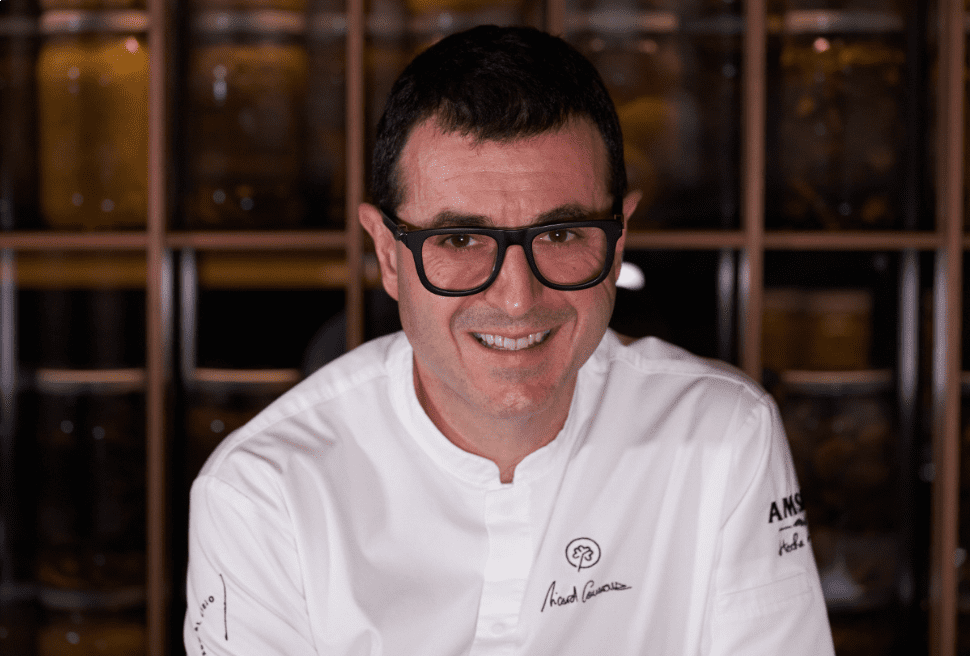For eleven years, Ricard Camarena has dedicated his creativity to the exploration of plant-based food, working elbow-to-elbow with suppliers, paying respect to the integrity of the ingredients. "Because every product is good in of itself, it just depends on where you look."
The story
Ricard Camarena is a successful solo artist in Spanish cuisine, educated by life’s contingencies. He grew up in Barx in his parents’ grocery store: he would spend his days smelling and handling vegetables, talking about recipes with the housewives. To study hôtellerie, he had to take out a loan, and to pay it back he then rented the village pool bar, at age twenty-six. "But we couldn't survive on tapas, so we started doing different things to earn more money, I'm simply not able to do repetitive tasks, I get bored. It's always been this way for me, I always need something new."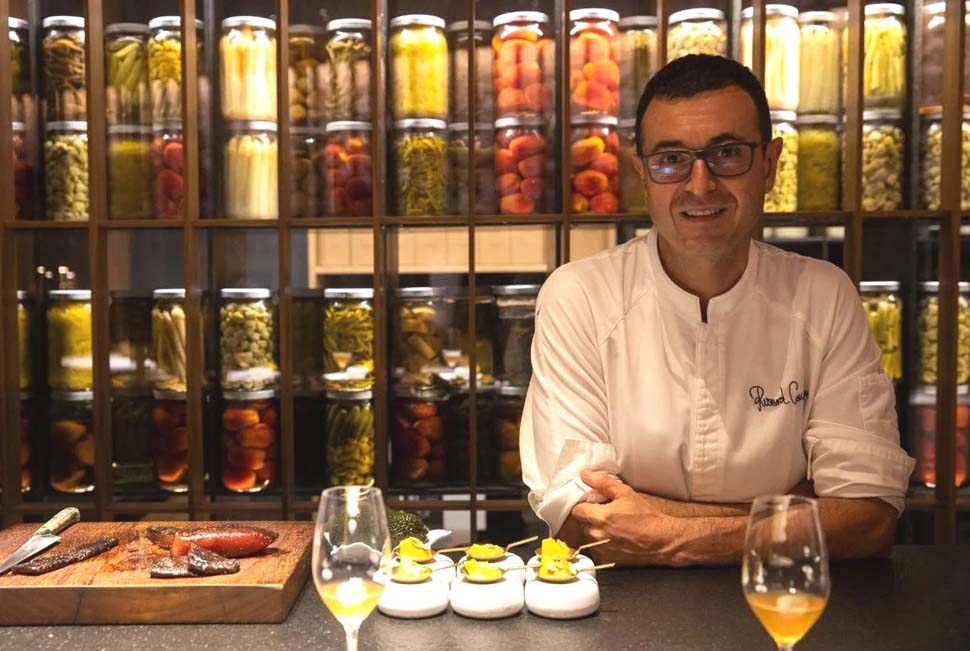
And so it was, in his last three summers working at the swimming pool he already started serving tasting menus. His debut in the restaurant business, however, dates to 2004, when he and his wife Mari Carmen Bañuls opened Arrop in nearby Gandia. "It seemed like the capital of the world and the ultimate location, until in 2008 we agreed to move our restaurant, which had already received several awards and a Michelin star, to a hotel in Valencia." In the same city, today he runs a small fleet of five restaurants behind the eponymous flagship, which boasts Two Michelin Stars plus a Green Star. He has also launched a range of products made from restaurant leftovers, called Letern sin Desperdicio. “Because every product is good in of itself, it just depends on where you look."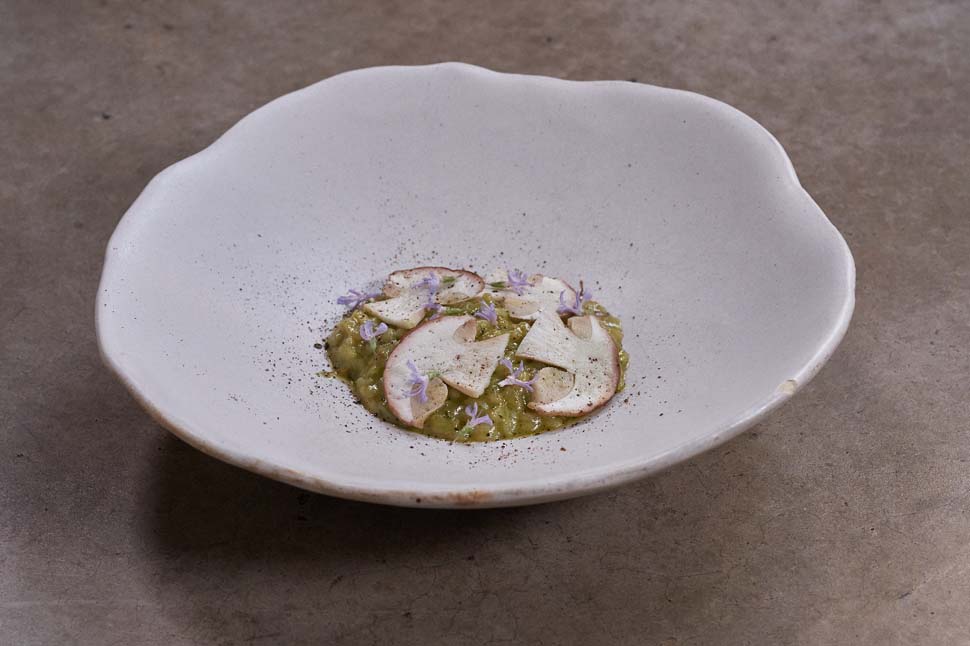 Creamy risotto with sheep butter, mushrooms, and wild herbs
Creamy risotto with sheep butter, mushrooms, and wild herbs
His culinary contributions include new techniques for preparing broths, without the addition of water, but redeeming the liquids of the ingredient itself with fats and collagen to maximize the intensity and freshness at the expense of the power of cooking and reduction. Such results were achieved basically in a self-taught manner, without experience in high places or the aid of excellent mentors, rather reading and learning daily about local products. "I interpreted the typical pantry more than the cookbook, and already at Arrop my cooking stood out to resemble none. When el Bulli, which was a beacon for so many, closed, some people felt lost and started looking for their own path, but we had already come a long way, evolving without external reference points."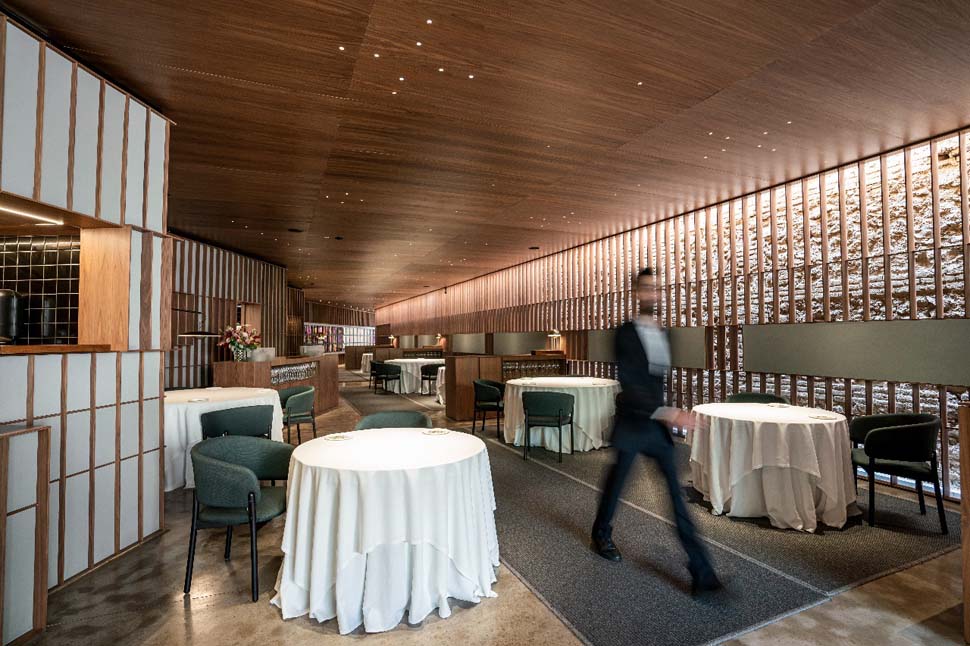
Today, Camarena's creativity focuses on the vegetable garden, so much so that he was awarded eighth in the world by We're Smart Green Guide. “If you don't treat beans like caviar, we're dead, you and me," rebukes a cook in the scene of a documentary dedicated to Camarena, La Receta del Equilibrio. “For eleven years we have been working at the service of the garden, which dictates the evolution of the menu in all our restaurants. We are a means to enhance the product, not the end that uses it. It seems to be in style nowadays, but we have been making this shift for many years, so much so that vegetables make up about 70% of our menu. We focus on products that seemed destined to accompany more important ones but instead, our cuisine works oppositely. Crustacean proteins accompany vegetables, serving them."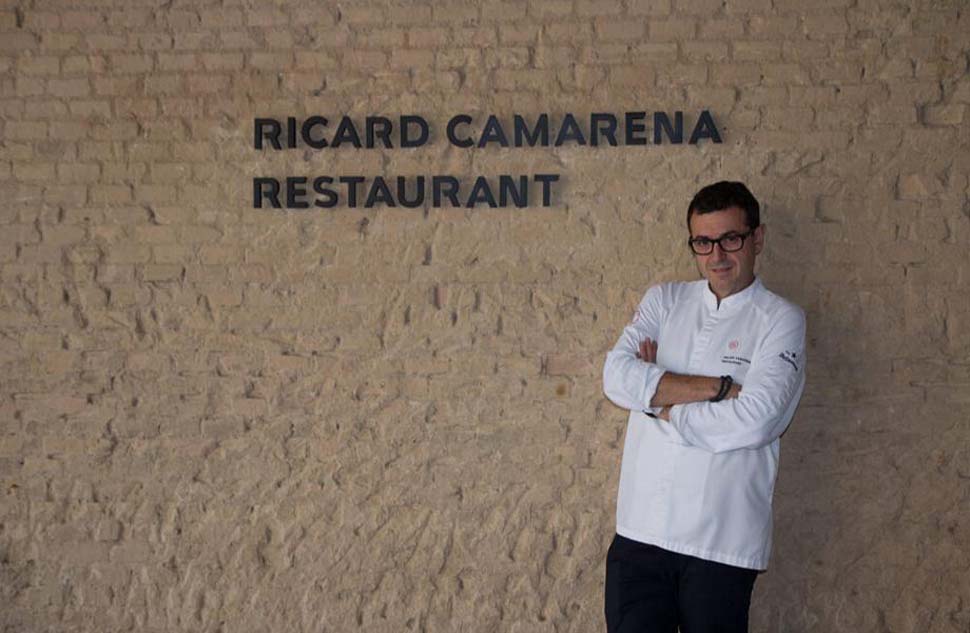
"It all starts from a personal and human relationship with the suppliers. We like the idea that we can contribute to the quality of the crops. We believe that, if we put our creative resources to work, they’ll turn out not only to be good but comparable to the best. The pandemic was actually a big help in finding my role. I took limits as resources, almost creatively necessary, and looked for a way to be useful to our ecosystem, and to those who work in the fields. I wanted to give a second life to products that would otherwise go discarded. This is an ongoing dialogue that has taken deep roots and penetrated all our proposals."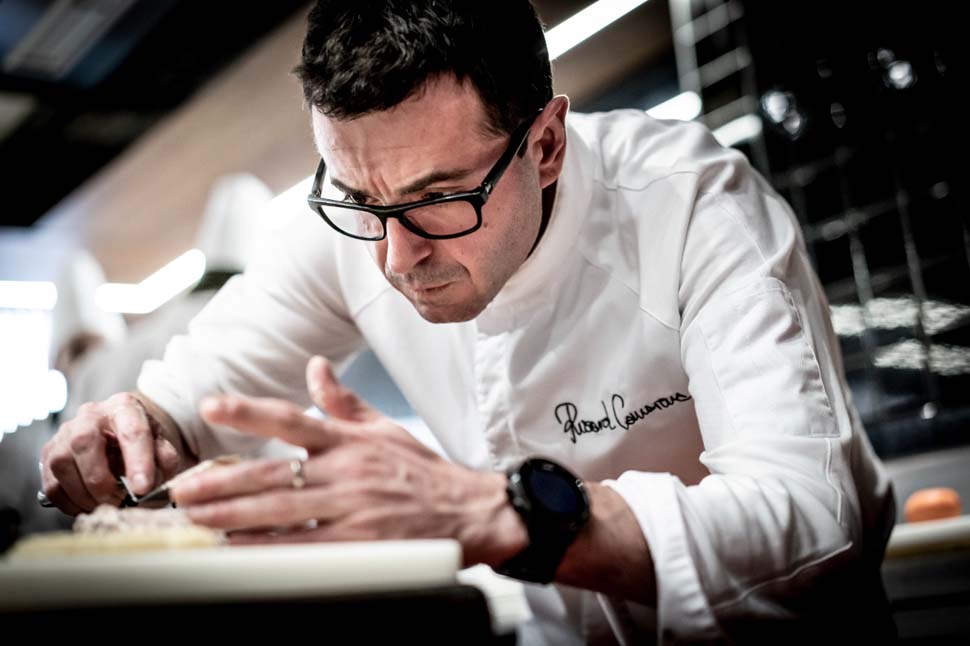
"We separated the things that bring value from the things we did just because they were 'must-haves' in a fine dining restaurant. I am more and more interested in simplicity, but there is a lot of work behind it. As Artur Martinez, a chef friend, says: 'Investigated simplicity is better than forced complexity.' To know that less is more, that it is easier to add than to take out. I am in the carving phase."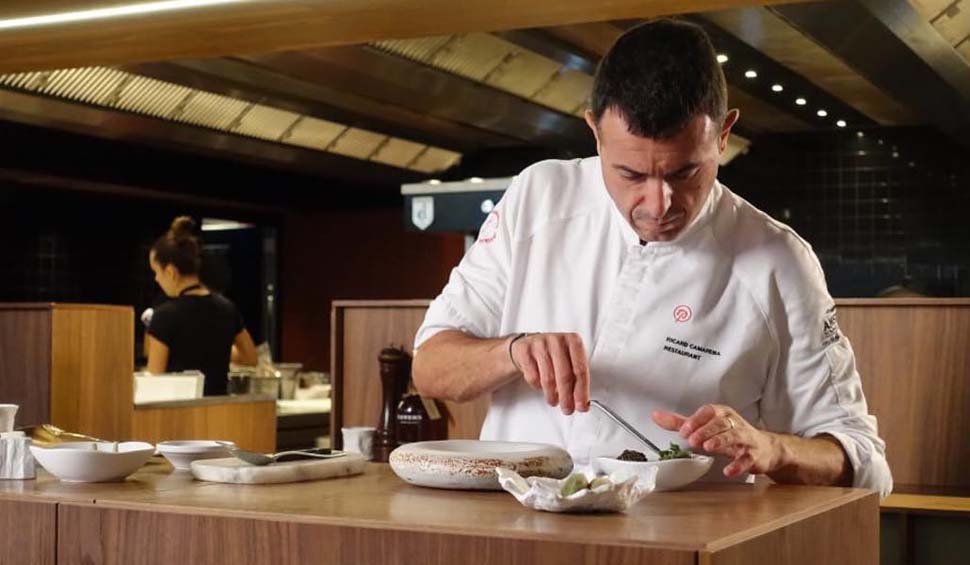
The dishes on the menu are not specified on the website since they are constantly changing. "What I'm looking for is the whole, not the sum of the parts, some of my dishes are not in a spotlight position but are there instead to highlight the previous or new ones. To me, the menu is a team where individuality shines, so some elements end up doing the most anonymous work. A delicate dish after a powerful one allows one’s palate to rest." A final word of advice to aspiring chefs: "Let them make sure they really love this, because cooking is one thing, but the life of a chef is another. It is a job that requires a lot of passion and many sacrifices."
Source: clubinfluencers.com
